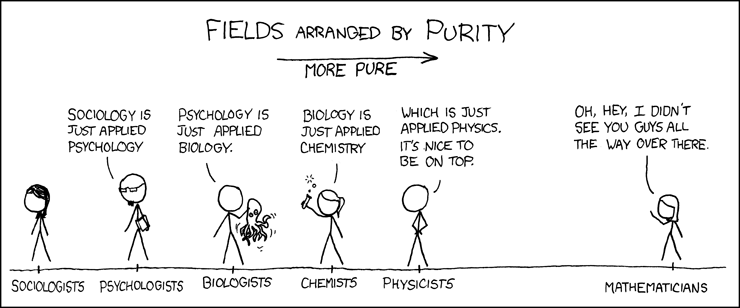That's fine. The dimensions of space are no more real to me than the dimension of time...
However, I'll focus on this comment. There appear to be 3 dimensions. I guess I don't see any dimensions, though I know that is the convention.
This seems very peculiar to me. I mean, I take what you mean about Descartes laying coordinate axes over space to measure it, but really this idea that there are three spatial dimensions is quite intuitive. I hardly feel compelled to quote sources like Newton or Descartes or Euclid saying, "A solid is that which has length, breadth, and depth."
Don't apples and automobiles have length, breadth, and depth?
However, as I learned in my sophomore engineering classes, for some machines it is more mathematically convenient to use something other than 3.
So, for some very real, very material things I can easily describe them with other than 3 dimensions. There is nothing that physically forces me to use 3.
Nothing forces this description, no. We can use all sorts of 'coordinates' to describe things. But I was careful to say "three
spatial dimensions". To locate a unique position
in space requires no fewer than three coordinates (and using more than three would be redundant). This apple is at such and such a longitude, lattitude, and height above the ground. Or it's this far from the floor, this far from that wall, and this far from that other wall. Or to get that apple, turn 45 degrees to the right, walk 8 steps, and reach two feet above your head.
Yes, so clocks are material. Is there any way to measure time without a material clock?
You're sure you don't want to ask this in Philosophy? I really don't know what you mean. I can estimate the passage of time by counting out loud or in my head, but I need a material head to do that. We've established that we measure time with clocks, and if you have an immaterial clock, you don't actually have a clock. So a material clock would seem to be necessary.
And why was cesium chosen? Maybe because it's stable? Constant?
Yes. It's quite stable to the limits of our ability to test it (because that would require an even better clock). I think cesium is particularly suitable because it has only one valence electron, and several shells isolating it from any effects from the nucleus, but I don't know that cesium is the best element possible.[/quote][/quote]


